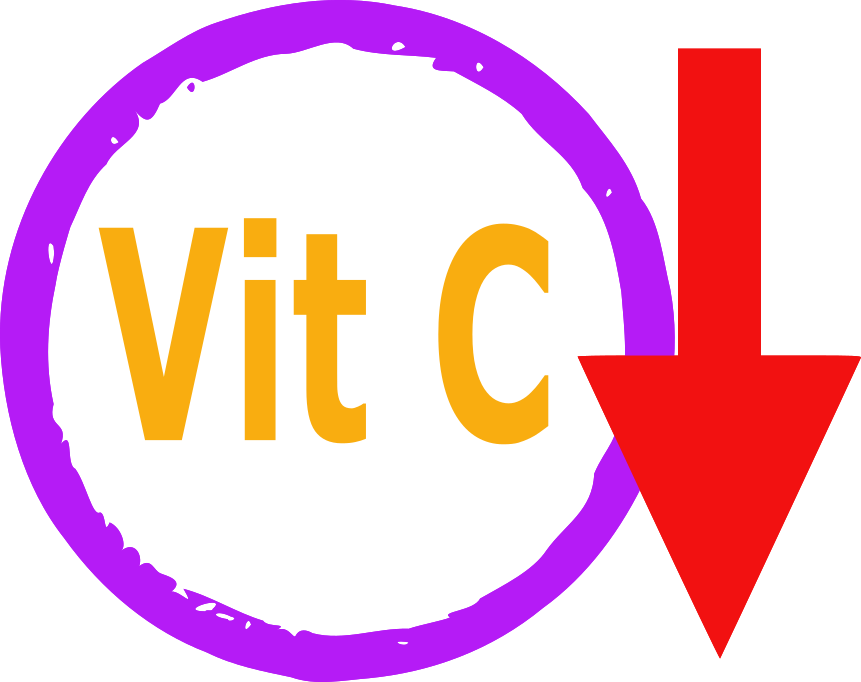Medicine details
| Image |  |
| Name | Ascorin 250 |
| Dosage | Tablet |
| Generic Name | Vitamin C |
| Classes |
Nutritional Supplement Vitamin |
| Diseases |
Bleeding Gum Bone Problem Coughing Fever Gingivitis Malnutrition Pneumonia Scurvy Teeth Disorder Vitamin C Deficiency |
| Company | Bristol Pharma Ltd. |
Drug Package Details
| Strength | 250 mg |
| Storage Condition | |
| Origin Country | Bangladesh |
| Commercial Pack | 200 |
| Price per pack | ৳ 260.00 |
| Cost per pack | ৳ 228.80 |
| Package unit | 10 tabs strip |
| Price per unit | ৳ 1.30 |
| Cost per unit | ৳ 1.14 |
| Discount | 0 |
| Coupon | |
| Remarks |
Vitamin C
Vitamin C, also known as ascorbic acid, is required for the development, growth, and restoration of all body tissues. It is associated in many bodily functions, including collagen synthesis, iron absorption, immune system function, wound repair, and cartilage, bone, and tooth maintenance.
Vitamin C is indicated for deficient patients. Defective bone and tooth development, gingivitis, bleeding gums, and loosened teeth are all signs of moderate insufficiency. The need for ascorbic acid (vitamin c) increases in febrile states, chronic sickness, and infection (pneumonia, whooping cough, tuberculosis, diphtheria, sinusitis, rheumatic fever, and so on).
- Scurvy
- Vitamin deficiency
- Ascorbic acid (vitamin C) is typically taken orally. When oral administration is not possible or malabsorption is suspected, the drug may be administered intravenously, intravenously, or subcutaneously. When given parenterally, vitamin utilization appears to be best after IM administration, and this is the preferred parenteral route.
- Dilution into a large volume parenteral such as Normal Saline, Water for Injection, or Glucose is recommended for intravenous injection to minimize the adverse reactions associated with intravenous injection.
- The recommended daily dose of vitamin C for adults is 70 to 150 mg. Doses of 300 mg to 1 g daily are recommended in the presence of scurvy. However, up to 6 g has been administered parenterally to healthy adults with no ill effects.
- To improve wound healing, doses of 300 to 500 mg daily for a week or ten days both preoperatively and postoperatively are generally regarded as adequate, though much higher amounts have been recommended. Doses in the treatment of burns are determined by the extent of tissue injury. Daily doses of 1 to 2 g are recommended for severe burns. In other cases where the need for vitamin C is greater, three to five times the daily optimum allowances appear to be sufficient.
- When the solution and container allow, parenteral drug products should be visually inspected for particulate matter and discoloration prior to administration.
Transient mild soreness at the site of intramuscular or subcutaneous injection is possible. Acute fainting or dizziness may occur if the solution is administered intravenously too quickly.
- Diabetics, patients at risk of recurrent renal calculi, those undergoing stool occult blood tests, and those on sodium-restricted diets or anticoagulant therapy should avoid taking excessive vitamin C doses for an extended period of time.
- Rapid intravenous injection should be avoided.
Contraindication
Contraindicated in patients hypersensitive to any component of the preparation.
There is no known contraindication of the preparation in terms of food and drinks.
There is no known contraindication of the preparation in terms of health conditions.



 Bangla
Bangla English
English